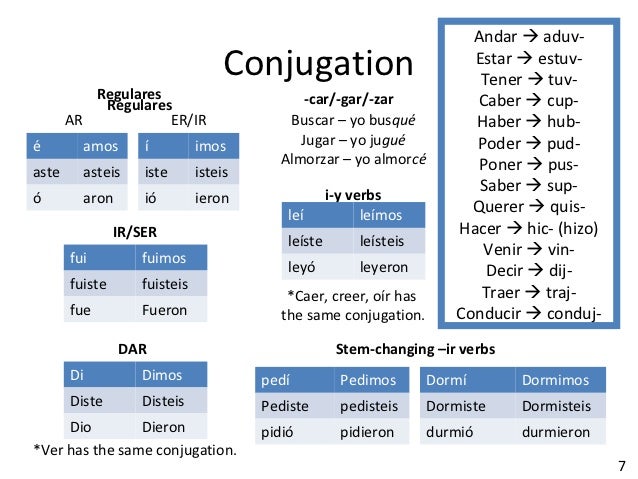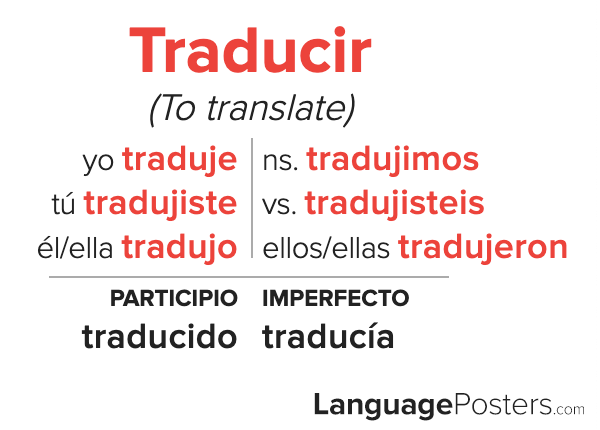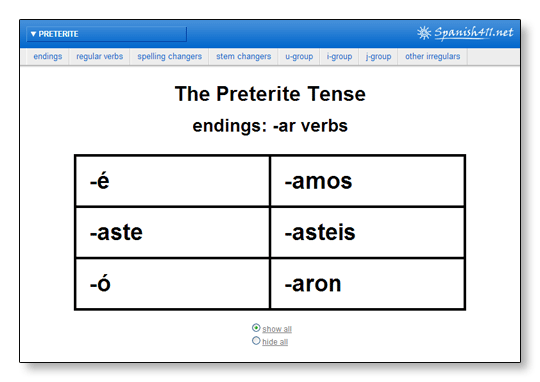

Free lesson materials that you can take.Anxiety-free experience & ease of learning.With Homeschool Spanish Academy, get access to innovative, human-centered learning strategies and SPEAK SPANISH from your very first class. Lucky for you, there are also a bunch of words and phrases that tend to signal that a verb should be used in the imperfect! The imperfect form is typically used for: habitually repeated actions time and dates someone’s age in the past characteristics and mental or physical states.

Perhaps they are yet to be completed or they refer to a general time in the past. On the other hand, you’ll be using the imperfect tense to talk about past actions without a definite end. Our teachers are eager to meet you! Sign up for your free trial class.

Preterite tense spanish translator how to#
How to Use ‘Darse Cuenta’ in Spanish Conversation.Venir vs Llegar: They Don’t Mean the Same Thing.Hace (tres) días – (three) days ago Verbs that (Almost) Always Use the Preteriteįurthermore, verbs used to discuss events with a certain beginning and end are almost always used in the preterite. Let’s take a look at some of them!ĭurante (cinco) siglos – for (five) centuriesĭesde el primer momento – from the first moment Imperfect: Regular -er and -ir VerbsĬorrer (to run): corría, corrías, corría, corríamos, corríanĪbrir (to open): abría, abrías, abría, abríamos, abrían El Preterito Phrases that Trigger the PreteriteĪ handful of words and phrases indicate specific time frames that signal the use of the preterite (vs imperfect). So, hablar in this form becomes hablaba, hablabas, hablaba, hablábamos, hablaban. hablaron Preterite: Regular -er and -ir VerbsĬorrer (to run): corrí, corriste, corrió, corrimos, corrieronĪbrir (to open): abrí, abriste, abrió, abrimos, abrieron Imperfect: Regular -ar Verbs For example: hablar (to talk) becomes yo hablé, tú hablaste, él/ella/Ud.


 0 kommentar(er)
0 kommentar(er)
